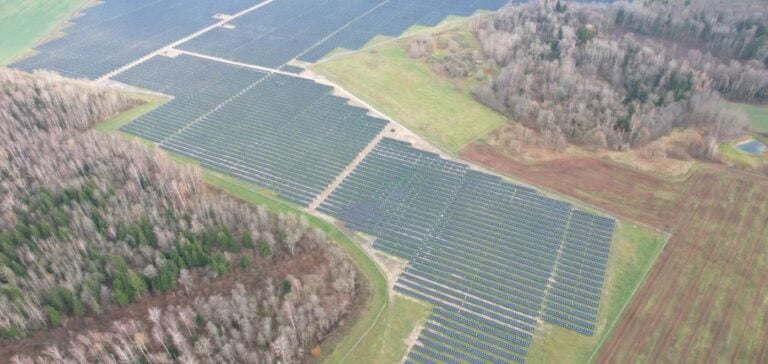European Energy secured a long-term loan of EUR 145mn ($157mn) from SEB Lithuania and Swedbank Lithuania to strengthen its position in Lithuania’s renewable energy sector. The funding covers the operation of existing assets and the development of a new energy storage facility.
The loan will support the operation of the Telšiai I and Telšiai II onshore wind farms, each with an installed capacity of 60 megawatts (MW), as well as the Anykščiai solar park with a capacity of 78.5 MW. The project also includes the construction of a battery storage facility co-located with the solar park.
Strengthening the regional strategy
European Energy considers Lithuania a strategic market for the expansion of its hybrid assets portfolio combining production and storage. The company is pursuing a technology diversification strategy to stabilise output and enhance integration with the local grid.
“Adding battery storage to our portfolio in the Baltic countries strengthens the resilience of our renewable energy production,” said Jens-Peter Zink, Deputy Chief Executive Officer of European Energy, regarding the agreement with SEB and Swedbank.
Increased role of banks in energy projects
According to SEB Lithuania, the hybrid project is expected to generate around 0.5 terawatt-hours (TWh) of electricity annually, covering approximately 4% of national consumption. “It is important for SEB to support investments of this magnitude,” stated Tadas Jonušauskas, Board Member and Head of Corporate Banking Division at SEB Lithuania.
Swedbank reported that green loans now represent nearly 35% of its total corporate lending portfolio, amounting to over EUR 1.4bn ($1.51bn). “This partnership reflects our long-term commitment to sustainable financing,” said Ignas Mačeika, Board Member and Head of Corporate Division at Swedbank.
Energy targets and capacity under development
European Energy has already built around 450 MW of renewable capacity in Lithuania and is currently developing an additional 200 MW, including storage components. These projects align with national targets set in the Renewable Energy Law of the Republic of Lithuania.
The legislation mandates that by 2030, all electricity consumed in Lithuania should be generated from renewable sources. In 2024, the country still imported approximately 44% of its electricity. Lithuania’s power system is interconnected with the European grid via Poland and integrated into the Nord Pool regional exchange.






















